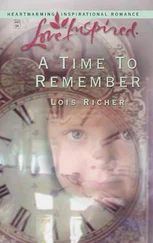Alexander Todd - A Time to Remember
Здесь есть возможность читать онлайн «Alexander Todd - A Time to Remember» весь текст электронной книги совершенно бесплатно (целиком полную версию без сокращений). В некоторых случаях можно слушать аудио, скачать через торрент в формате fb2 и присутствует краткое содержание. Город: Cambridge, Год выпуска: 1983, ISBN: 1983, Издательство: Cambridge University Press, Жанр: Химия, Биографии и Мемуары, на английском языке. Описание произведения, (предисловие) а так же отзывы посетителей доступны на портале библиотеки ЛибКат.
- Название:A Time to Remember
- Автор:
- Издательство:Cambridge University Press
- Жанр:
- Год:1983
- Город:Cambridge
- ISBN:0 521 25593 7
- Рейтинг книги:3 / 5. Голосов: 1
-
Избранное:Добавить в избранное
- Отзывы:
-
Ваша оценка:
- 60
- 1
- 2
- 3
- 4
- 5
A Time to Remember: краткое содержание, описание и аннотация
Предлагаем к чтению аннотацию, описание, краткое содержание или предисловие (зависит от того, что написал сам автор книги «A Time to Remember»). Если вы не нашли необходимую информацию о книге — напишите в комментариях, мы постараемся отыскать её.
A Time to Remember — читать онлайн бесплатно полную книгу (весь текст) целиком
Ниже представлен текст книги, разбитый по страницам. Система сохранения места последней прочитанной страницы, позволяет с удобством читать онлайн бесплатно книгу «A Time to Remember», без необходимости каждый раз заново искать на чём Вы остановились. Поставьте закладку, и сможете в любой момент перейти на страницу, на которой закончили чтение.
Интервал:
Закладка:
The Lister Institute was in those days a curious place. It had a substantial section devoted to bacteriology, which was not surprising since the Institute had a branch at Elstree which produced sera and vaccines in bulk; indeed, the sale of these materials was the main source of income for the Institute in Chelsea Bridge Road. Its other main activities were nutrition and biochemistry, and my group was something of an oddity since I was much more chemical in my approach than Robison or his predecessor Arthur Harden. Our habit of working late at night and at weekends and our production of a wide range of penetrating and at times not very pleasant odours did not increase our popularity in an institution which was in any event rather inward-looking and whose staff, I am afraid, formed something of a mutual admiration society. Nevertheless, during my stay at the Lister Institute we tidied up the vitamin B1 studies by making a number of analogues, isolated beta-tocopherol (one of the vitamins E) from rice-germ oil, established the main features of its structure and embarked on the synthesis both of it and of alpha-tocopherol. In addition we started work on the active principle of Cannabis indica (C. sativa) and, with Madinaveitia, on the spreading factor (hyaluronidase) present in testicular extracts. On the whole, then, we accomplished quite a lot during our two year disturbance of the Lister Institute's otherwise peaceful existence!
Our work on Cannabis at the Lister brought me into an early and, in retrospect, slightly absurd confrontation with the Home Office Drugs Branch. The starting material for our studies was a distilled extract of hashish which had been seized by police in India and had been obtained from them by my colleague Franz Bergel while on a visit to that country some years before and while he was still resident in Germany. The distilled resin was transmitted to Germany via the diplomatic bag, and, in due course, brought to Edinburgh through the port of Leith together with a variety of other chemicals in a suitcase carried by Bergel; no questions were asked by the Customs. In starting our work in the Lister we first isolated cannabinol from the resin, and showed that, contrary to general belief, it was pharmacologically inert, the hashish effect residing in the material left after its removal. We submitted a brief paper on these observations to a meeting of the Biochemical Society early in 1938 and this was duly printed in Chemistry and Industry, which in those days published short abstracts of papers read at such meetings. Within two or three days of the appearance of our little note I received a letter from the Drugs Branch inviting me to come to the Home Office and speak with one Inspector X at my early convenience. This interest of the authorities in me and my work was unexpected, but I went to the Home Office and was duly shown to the room of Inspector X who was seated at a large desk on which lay a copy of Chemistry and Industry and what looked like a large ledger. After exchanging the usual courtesies the Inspector said 'I see you have been doing some work with hashish,' to which I could only reply 'Yes.'
'You realise, of course, that Cannabis in all its forms is proscribed.'
'I suppose it is.'
'Well, we can probably straighten things out fairly easily so don't worry. Here in this book I have a record of all the legal holders of Cannabis in this country with the amounts of material they hold.'
I glanced quickly at the opened ledger. On the page visible to me there were a dozen or so names of doctors and professors each with small amounts of drug opposite them - usually only a few grams or ounces.
'Now,' said Inspector X, 'presumably you got your hashish from one of these holders and the only irregularity is that he didn't notify me; but we can easily put that right by an appropriate entry. Which of them gave it to you?'
'I'm afraid none of them did.'
'Then who did?'
'The Indian police.'
'Yes, but how did it get into this country?'
'In a suitcase at Leith.'
'You mean that you smuggled hashish?'
'I wouldn't call it smuggling. It was in a properly labelled flask, but the Customs people didn't seem to be very interested in it; it was just one of a number of bottles of chemical specimens in the suitcase.'
At this point there was a brief silence; then 'How much of the stuff have you got?'
I confess I had been waiting, not without trepidation, for this question and at first I tried to parry.
'Well, of course, what I have is a distilled extract of hashish and not the drug as it appears on the Indian market.'
'Never mind about that - just tell me how much.'
I plucked up my courage. 'Two and a half kilograms.'
'Good God!'
The Inspector looked worried and after a few moments he said 'What are we going to do about this?' followed by a long pause and then 'I think we had better make you a licensed holder of Cannabis.'
So he wrote in his ledger ' Dr Todd 2 1/2 kilos', and added ' You will of course understand that this material must be kept under lock and key, that all amounts you use in your work must be duly recorded, and that your records will be open to inspection by us at any time. Furthermore, if you publish any papers arising from work with this resin we will expect twenty-five reprints of each paper.'
'Certainly. Where shall I send the reprints?' 'Send them to me at the Bureau of Drugs and Indecent Publications.'
Until my appointment to the staff of the Lister Institute, I had existed entirely on research awards of various types and had given little thought to such things as security of tenure. My outlook on such matters changed somewhat after my engagement to Miss Dale. She gave up her Beit Memorial Fellowship in the summer of 1936 and returned from Edinburgh to her parents' home in Hampstead; I found lodgings in Gordon Square, Bloomsbury, not far from Warren Street Underground Station, nicely poised for Chelsea and Hampstead between which places I divided most of my time until we were married on 30 January 1937. Already during the summer of 1936, after I had accepted appointment to the Lister Institute but before I had taken up my duties, other possibilities began to appear. In July of that year I, with my fiancee and her parents, attended a garden party at the Robinsons' home in Oxford. There we met President Cody of the University of Toronto who was visiting Oxford and was looking for someone to occupy the vacant chair of organic chemistry in Toronto. Encouraged no doubt by Sir Robert Robinson and Sir Henry Dale, Cody asked me if I would accept the chair; I said I would, and he departed for home a few days later. Some time thereafter I had a long letter from Cody explaining that I was rather young and that it might be easier for me to come as Associate Professor and be promoted to Professor in a year or two's time. My fiancee and I discussed this proposition at great length and, of course, consulted her father and Sir Robert. Finally we agreed that this was reasonable and I wrote off saying I would accept the offer. After some delay I had another letter from Cody saying things were very difficult in the chemistry department in Toronto and offering me the post of Assistant Professor! At this I blew up and wrote a fierce letter addressed to President Cody in which I told him exactly what I thought of him and the University of Toronto! Sir Henry Dale was somewhat alarmed by the letter when I showed it to him, and asked that he be allowed to send it first to his friend Charles Best (of insulin fame) in Toronto who would decide whether to pass it to Cody. I believe Best conveyed the gist of it but not the actual letter. I suppose he was right, but at the time I felt very sore about it. However, my wife and I had just married by then and were settling in to a flat we had found in Wimbledon, so that such matters didn't disturb us too much.
Читать дальшеИнтервал:
Закладка:
Похожие книги на «A Time to Remember»
Представляем Вашему вниманию похожие книги на «A Time to Remember» списком для выбора. Мы отобрали схожую по названию и смыслу литературу в надежде предоставить читателям больше вариантов отыскать новые, интересные, ещё непрочитанные произведения.
Обсуждение, отзывы о книге «A Time to Remember» и просто собственные мнения читателей. Оставьте ваши комментарии, напишите, что Вы думаете о произведении, его смысле или главных героях. Укажите что конкретно понравилось, а что нет, и почему Вы так считаете.










